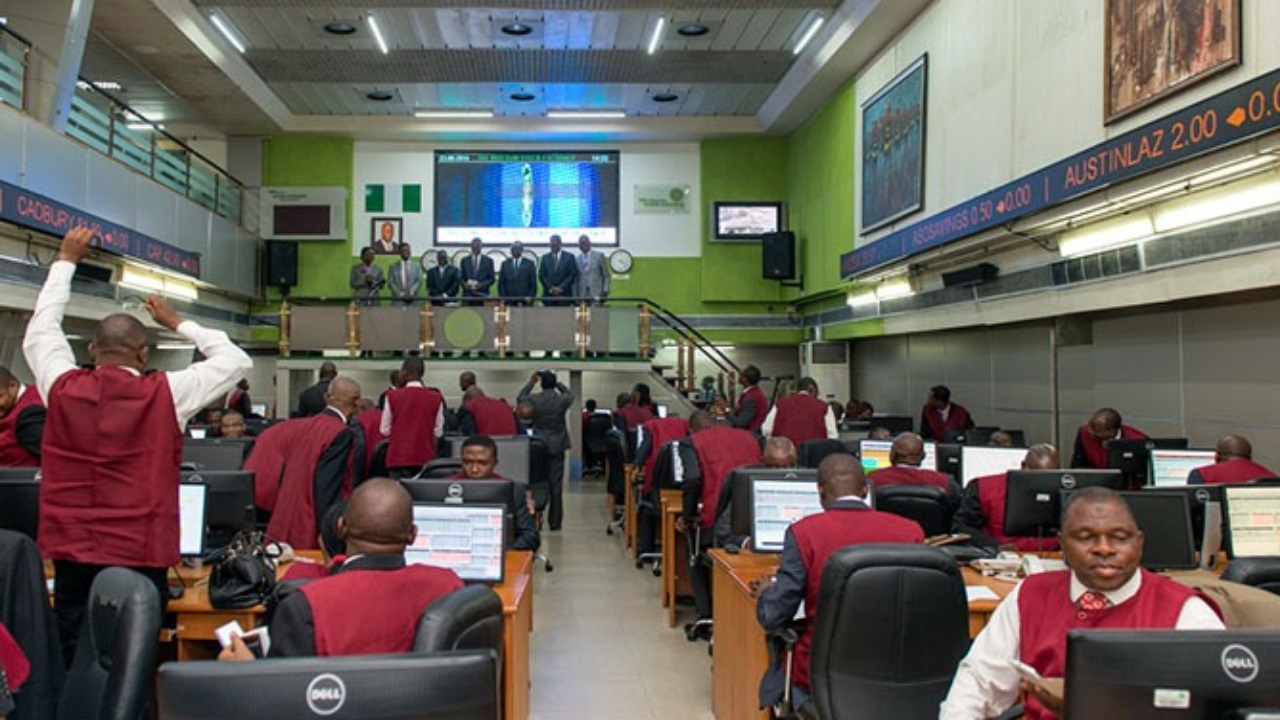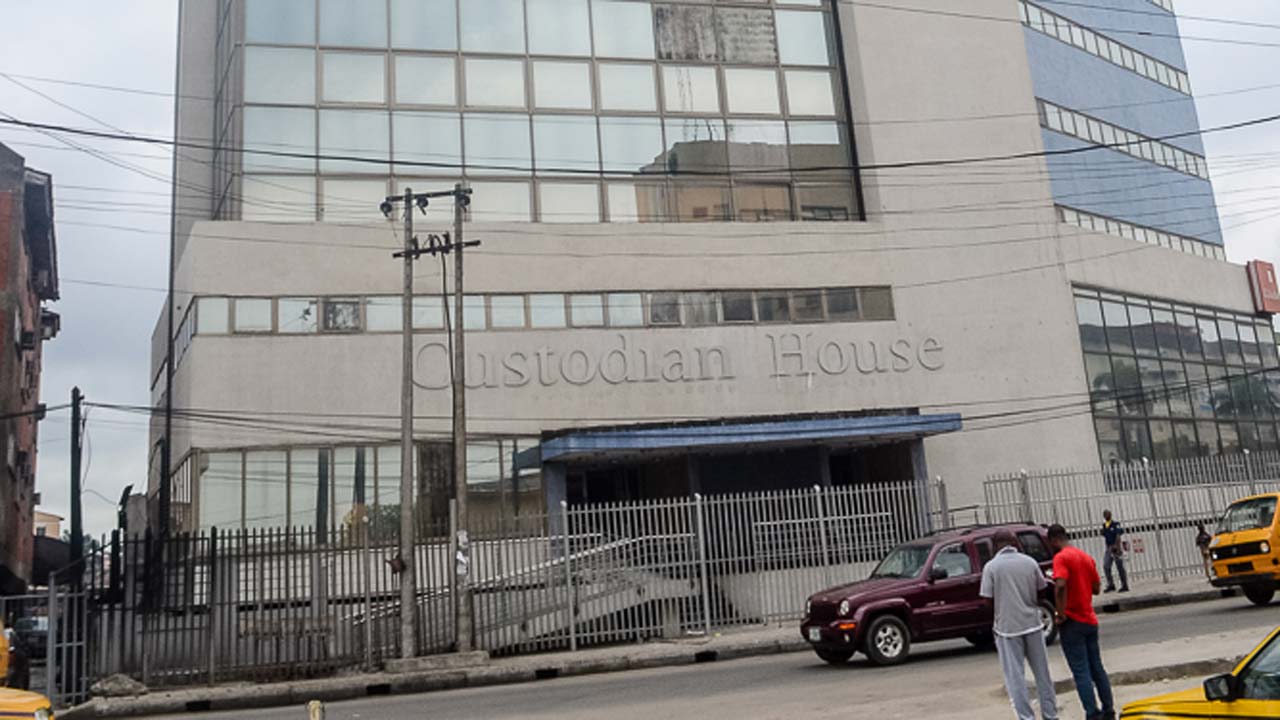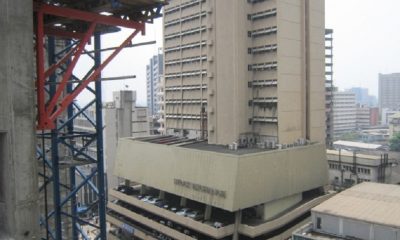Economy
Trade War Concerns Resurface Again on Wall Street
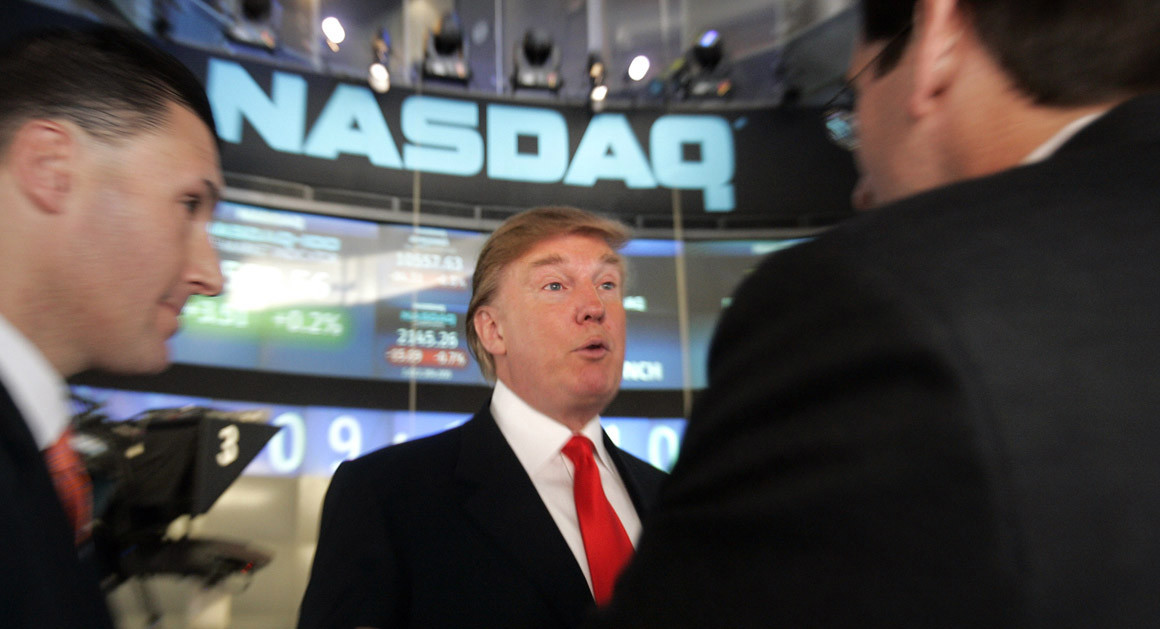
By Investors Hub
The major U.S. index futures are pointing to a lower opening on Friday following the upward move seen over the course of the three previous sessions.
Renewed trade war concerns may weigh on the markets after President Donald Trump threatened China with $100 billion of additional tariffs.
The threat from Trump comes after the U.S. and China traded tit-for-tat tariff announcements earlier in the week, leading to considerable volatility on Wall Street.
Responding to the threat from Trump, the Chinese Commerce Ministry declared it would ?not hesitate? to retaliate to new tariffs ?at any cost.?
However, Trump said the U.S. is still prepared to have discussions with China in support of its commitment to achieving free, fair, and reciprocal trade.
Negative sentiment may also be generated by a report from the Labor Department showing U.S. job growth slowed by much more than anticipated in the month of March.
After turning higher over the course of the trading session on Wednesday, stocks saw some further upside during trading on Thursday. The major averages fluctuated in afternoon trading but managed to end the day firmly in positive territory.
The major averages closed higher for the third straight day following the sell-off on Monday. The Dow jumped 240.92 points or 1 percent to 24,505.22, the Nasdaq rose 34.44 points or 0.5 percent to 7,076.55 and the S&P 500 climbed 18.15 points or 0.7 percent to 2,662.84.
The continued strength on Wall Street reflected easing concerns about a potential trade war between the U.S. and China, which have recently led to considerable volatility on Wall Street.
The U.S. and China have engaged in tit-for-tat tariff announcements, but traders seem optimistic that the threats are only a precursor to negotiations of a trade agreement between the two countries.
Amid the focus on trade relations, the Commerce Department released a report showing the U.S. trade deficit widened by more than anticipated in the month of February.
The Commerce Department said the trade deficit widened to $57.6 billion in February from a revised $56.7 billion in January. Economists had expected the trade deficit to widen to $56.8 billion.
The wider than expected trade deficit in February was the widest since the $60.2 billion trade deficit recorded in October of 2008.
However, Andrew Hunter, U.S. Economist at Capital Economics, noted the wider trade deficit was entirely due to a one-off royalty payment for broadcasting rights to the Winter Olympics.
A separate report from the Labor Department showed a bigger than expected increase in initial jobless claims in the week ended March 31st.
The report said initial jobless claims climbed to 242,000, an increase of 24,000 from the previous week’s revised level of 218,000. Economists had expected jobless claims to rise to 225,000.
Energy stocks showed a substantial move to the upside on the day amid a modest increase by the price of crude oil. Reflecting the strength in the energy sector, the Philadelphia Oil Service Index surged up by 3.4 percent, the NYSE Arca Natural Gas Index jumped by 2.8 percent and the NYSE Arca Oil Index advanced by 1.9 percent.
Considerable strength was also visible among steel stocks, as reflected by the 2.8 percent gain posted by the NYSE Arca Steel Index. The strength in the sector reflected the easing trade war concerns.
Chemical stocks also saw significant strength, driving the S&P Chemicals Index up by 1.9 percent. The index continued to rebound after hitting its lowest closing level in nearly seven months on Monday.
Brokerage, retail and housing stocks also moved notably higher, while some weakness emerged among semiconductor and biotechnology stocks.
Economy
Naira Further Crashes to N1,349/$1 at Official Market
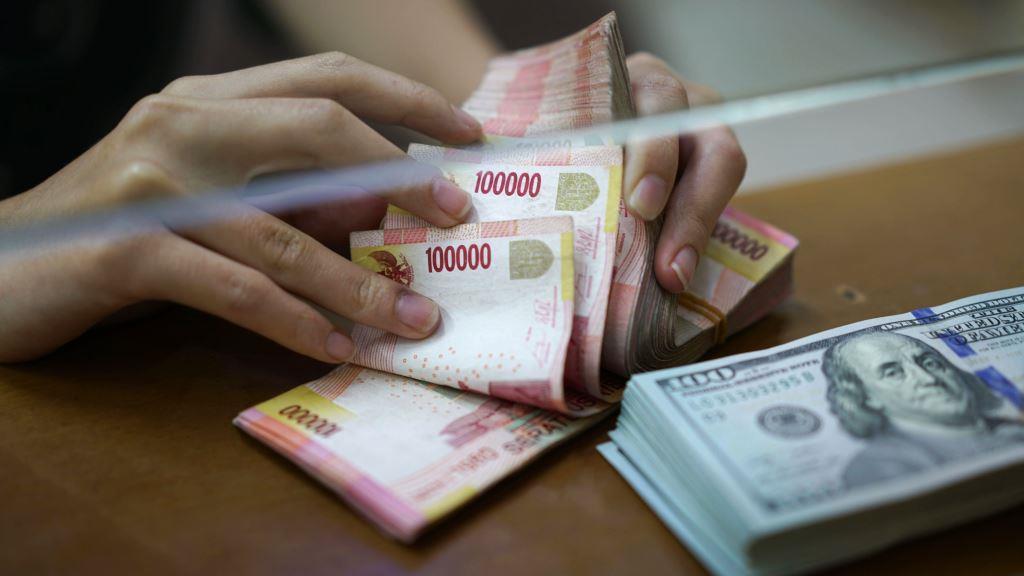
By Adedapo Adesanya
The first trading day in the currency market in Nigeria ended bearish for the Naira as its value further weakened against the US Dollar in the Nigerian Autonomous Foreign Exchange Market (NAFEX) on Monday by N2.92 or 0.22 per cent to N1,349.24/$1 from the N1,346.32/$1 it was traded last Friday.
Also in the spot market, the Nigerian currency depreciated against the Pound Sterling by N6.62 during the trading day to close at N1,821.87/£1 versus the preceding session’s N1,815.25/£1, and lost N6.80 on the Euro to settle at N1,591.42/€1, in contrast to the previous rate of N1,584.62/€1.
At the GTBank forex desk, the Nigerian Naira crashed against the greenback yesterday by N1 to quote at N1,357/$1 versus the preceding session’s closing value of N1,356/$1, but in the black market, the Naira appreciated by N5 to close at N1,365/$1 compared with the preceding trading day’s N1,370/$1.
The Naira slide came amid renewed pressure as weekly inflows declined, as Bureaux De Change (BDC) operators were unable to purchase Dollars from banks two weeks after the Central Bank of Nigeria (CBN) reopened the official FX Market window to them.
It had been expected that BDCs would help to further deflate the parallel market premium, but according to reports, BDC operators had yet to commence FX purchases from commercial banks, two weeks after the apex bank said legitimate agents can access up to $150,000 from the banks.
There were no FX inflows from the CBN during the past week, according to a report by the research department of Coronation Merchant Bank.
Meanwhile, Nigeria’s external reserves, which provide the CBN with firepower to support the naira, rose to $48.77 billion as of February 19, 2026.
Meanwhile, the cryptocurrency market was in the red as a broader risk-off shift tied to an emerging “AI scare trade” in equities is weighing on crypto markets.
This is leading traders to sell, while the sharp liquidation events that typically attract dip buyers have seen no such move recently, with Bitcoin (BTC) down by 3.2 per cent to $62,901.86.
Further, Ethereum (ETH) depreciated by 2.5 per cent to $1,821.13, Cardano (ADA) slid 1.9 per cent to $0.2571, Litecoin (LTC) went down by 1.9 per cent to $50.45, Solana (SOL) shrank 1.8 per cent to $76.54, Dogecoin (DOGE) declined by 1.7 per cent to $0.0912, Ripple (XRP) slumped 1.2 per cent to $1.32, and Binance Coin (BNB) lost 0.6 per cent to sell for $589.88, while the US Dollar Tether (USDT) and the US Dollar Coin (USDC) closed flat at $1.00 each.
Economy
Crude Oil Slips Ahead Third Round of US–Iran Nuclear Talks

By Adedapo Adesanya
Crude oil eased on Monday ahead of a third round of nuclear talks between the US and Iran, and amid increased economic uncertainty after the latest US tariff upheaval.
According to data, Brent crude futures lost 27 cents or 0.38 per cent to close at $71.49 a barrel, while US West Texas Intermediate (WTI) crude futures fell 17 cents or 0.26 per cent to per barrel $66.31.
Iran has indicated its preparedness to make concessions on its nuclear programme in return for sanctions lifting and recognition of its right to enrich uranium.
The Iranian government, facing pressure at home with a growing opposition and globally with threats of a US military strike, appears ready for a third round of Omani-mediated talks with American negotiators this week.
According to reports, the Foreign Minister of Oman, Mr Badr Albusaidi, on Sunday said talks would resume on Thursday, February 26, in Geneva “with a positive push to go the extra mile toward finalising the deal” over Iran’s nuclear program.
In separate remarks, the Iranian government suggested talks in the Swiss city on that date. However, there has been no confirmation from the US officials.
The US administration has been pressuring Iran to agree to curtail its nuclear program, which Iran insists is intended for peaceful, civilian purposes, such as electricity generation. The US, along with Israel and others in the West, has accused Iran of intending to build atomic weapons.
US President Donald Trump has dispatched two aircraft carrier strike groups, with dozens of fighter jets and bombers to the region, and other military planes and supporting forces have been spotted flying into air bases in the Middle East.
President Trump said on Saturday that he would raise a temporary tariff from 10 per cent to 15 per cent on US imports from all countries, the maximum allowed under the law.
This came after a US Supreme Court ruling last week struck down key parts of President Trump’s tariff plans, rekindling uncertainty among investors and businesses.
Goldman Sachs lifted its Q4 2026 Brent forecast to $60 and WTI to $56 per barrel, citing lower-than-expected OECD stock levels.
The bank still projects a 2.3 million barrels per day surplus in 2026, assuming no major supply disruptions.
Meanwhile, the Organisation of the Petroleum Exporting Countries and its allies (OPEC+) may resume production increases in 2026 amid limited inventory builds and shifting market dynamics.
Economy
NGX RegCo Cautions Investors on Recent Price Movements

By Aduragbemi Omiyale
The investing public has been advised to exercise due diligence before trading stocks on the Nigerian Exchange (NGX) Limited.
This caution was given by the NGX Regulation Limited (NGX RegCo), the independent regulatory arm of the NGX Group Plc.
The advisory became necessary in response to notable price movements observed in the shares of certain listed companies over recent trading sessions.
On Monday, the bourse suspended trading in the shares of newly-listed Zichis Agro-allied Industries Plc. The company’s stocks gained almost 900 per cent within a month of its listing on Customs Street.
In a statement today, NGX RegCo urged investors to avoid speculative trading based on unverified information and to consult licensed intermediaries such as stockbrokers or investment advisers when needed.
It explained that its advisory is part of its standard market surveillance functions, as it serves as a measured reminder for investors to prioritise informed and disciplined decision-making.
The notice emphasised that the Exchange will continue to monitor market activities closely in line with its mandate to ensure a fair, orderly, and transparent market.
“NGX RegCo encourages all investors to base their decisions on publicly available information, including a thorough assessment of company fundamentals, financial performance, and risk profile,” a part of the disclosure said.
It reassured all stakeholders that the NGX remains stable, well-regulated, and resilient, saying the platform continues to foster an environment where investors can participate with confidence, supported by robust oversight and transparent market operations.
“Our primary responsibility is to maintain a level playing field where market participants can trade with confidence, backed by timely and accurate information.
“This advisory is a routine communication, reinforcing that sound fundamentals, not speculation, remain the foundation for sustainable investment outcomes. We are fully committed to preserving the integrity and stability of our market,” the chief executive of NGX RegCo, Mr Olufemi Shobanjo, stated.
-

 Feature/OPED6 years ago
Feature/OPED6 years agoDavos was Different this year
-
Travel/Tourism10 years ago
Lagos Seals Western Lodge Hotel In Ikorodu
-

 Showbiz3 years ago
Showbiz3 years agoEstranged Lover Releases Videos of Empress Njamah Bathing
-

 Banking8 years ago
Banking8 years agoSort Codes of GTBank Branches in Nigeria
-

 Economy3 years ago
Economy3 years agoSubsidy Removal: CNG at N130 Per Litre Cheaper Than Petrol—IPMAN
-

 Banking3 years ago
Banking3 years agoSort Codes of UBA Branches in Nigeria
-

 Banking3 years ago
Banking3 years agoFirst Bank Announces Planned Downtime
-

 Sports3 years ago
Sports3 years agoHighest Paid Nigerian Footballer – How Much Do Nigerian Footballers Earn


